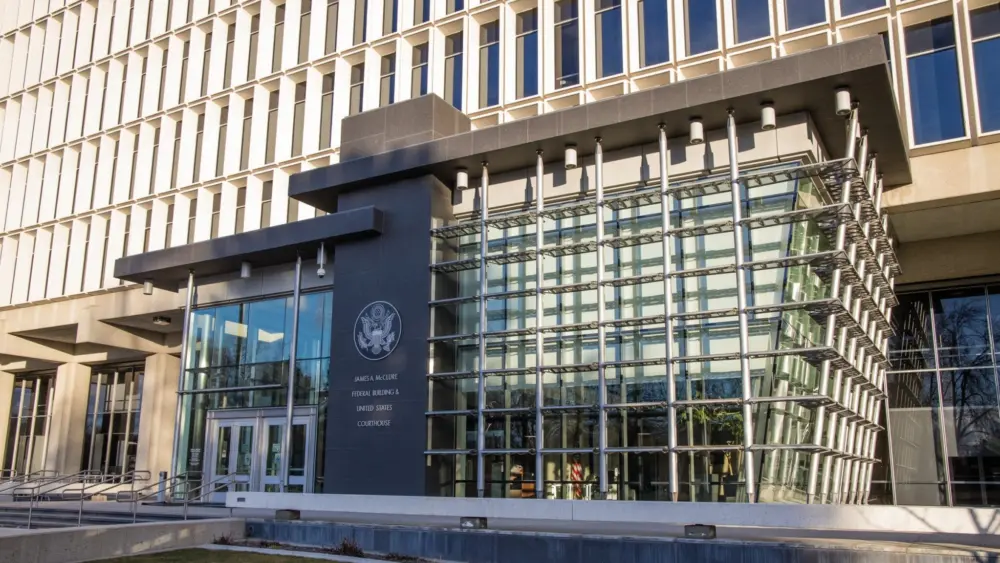BOISE, ID – As part of the major tax and spending bill passed by Congress in July, many refugees and asylum seekers in Idaho have immediately lost access to food assistance and will lose access to medical coverage from Medicaid next year.
Those seeking temporary humanitarian parole — a process to get legal authorization, used by many who came to Idaho from Afghanistan and Ukraine — will also have to pay a much higher fee to get a work permit.
Around 550 individuals have resettled in Idaho since last fall, said Holly Beech, communications manager for the Idaho Office for Refugees. As a result of the budget reconciliation package approved July 1, named H.R. 1 or the “One Big Beautiful Bill Act,” many of those individuals who had been using the Supplemental Nutrition Assistance Program, known as SNAP, and have not yet obtained their green card have been removed from the program.
Refugees in the U.S. will also have their access to health care through Medicaid and the Children’s Health Insurance Program removed by Oct. 1, 2026. Refugees will also lose eligibility for private health care through the Affordable Care Act on Jan. 1, 2027, and through Medicare Jan. 27, 2027.
“Providing people access to food and health care benefits has been a pillar of the resettlement program,” Beech said, “because when they’ve first arrived, they’ve often had to flee their home country out of fear for their lives, so they don’t have wealth built up or resources built up…. Those are the really crucial months where those programs mean a lot to people.”
The removal of food benefits has already gone into effect, but it’s unclear how many people have been affected. The Idaho Department of Health and Welfare, which administers SNAP, told the Sun that the agency can track recipients who were not citizens, but did not immediately provide the number of Idaho refugees who had been using the program before losing eligibility.
“We’re still awaiting guidance from our federal partner so we don’t have any details yet on how we will be asked to implement the changes in H.R.1.”
Around 70% of adults who arrive as refugees start working within five months, Beech said, but often the first job upon arrival doesn’t come with health insurance. Refugees must apply for their green card, which would reinstate their eligibility for public assistance, after one year.
U.S. senator for Idaho says he’s open to changes to refugee access to public assistance
U.S. Sen. Mike Crapo, R-Idaho, serves as chairman of the U.S. Senate Finance Committee and was key in authoring much of the version of the Big Beautiful Bill that passed. He supported the bill, but told the Idaho Capital Sun in a recent interview he would be open to reconsidering the revocation of public assistance for refugees.
Crapo said the refugee part of the nearly 900-page law was a “political negotiation.”
“I wish I could answer it any differently than that,” Crapo said.
He said he believes another approach could be taken “if we identify a very specific need there that can be resolved.”
“It’s a small population, and it’s one that is legally following the rules,” he said. “It seems to me that is the kind of population that would justify a second look.”
To be a refugee, people must be referred for consideration to the U.S. Refugee Admissions Program; demonstrate persecution or legitimate fear of persecution due to race, religion, nationality, political opinion, or membership in a particular social group; and be located outside the U.S.
A small percentage of those who apply get approval to come to the U.S., Beech said. Seeking asylum follows a similar process, but it is for people to arrive at the U.S. border and apply from within the country.
Federal U.S. Citizenship and Immigration Service policies slowing green card processing
Lately, changes at the federal agency that processes Permanent Resident Cards — known as green cards — seem to be slowing down that process, said Beech and Boise-based immigration attorney Chris Christensen.
The U.S. Citizenship and Immigration Services, or UCIS, paused the processing of all green card applications between March 21 and April 10, according to the International Refugee Assistance Project. Beech said the office’s resettlement partners are also reporting continued delays in processing in the residency documentation.
Some people with temporary protected status who received work authorization are getting held up or have not been able to have their parole renewed. The U.S. previously established parole programs, which allowed temporary legal status for citizens of Cuba, Haiti, Nicaragua, and Venezuela with a confirmed U.S.-supporter.
The temporary status was valid for two years and could be renewed. However, the federal government terminated the program and did not allow new parole to be granted.
“People came here legally, are working hard, are providing for their families, and these delays are really impeding their ability to do that,” Beech said.
People who applied for asylum in the U.S. are also facing long delays.
Christensen, the immigration attorney, noted that the backlog of asylum cases was already long, but the Trump administration also fired a number of immigration judges or offered deferred resignation, PBS reported.
He has clients who first applied for asylum in 2015 and are still awaiting an interview, he said.
Fees added or significantly increased for asylees and parolees
The large tax and spending bill also significantly increased fees for a number of asylum seekers. For instance, there used to be no cost to apply for asylum, but the new law implemented a $100 fee for an application and an additional $100 annual fee for each year the application remains pending.
“Most people seeking asylum are fleeing persecution. They often leave with just the clothes on their back, and now there’s a $100 filing fee in order to apply for asylum,” Christensen said.
He called the annual fee a “disincentive for the government to quickly adjudicate those cases.”
Asylum applicants used to also be able to file for their first work permit free, Christensen said, and now that fee is $550. The fee for a green card more than doubled to $2,940 if applying in immigration court.
Before the law, there was no fee for special immigrant juvenile cases, in which a court has determined a child has been abused, abandoned or neglected by their parents and that it is not in the best interest of the child to go back to their country of origin. That fee is now $250.
These fees were implemented quickly upon the passage of the budget reconciliation on July 4. It happened so quickly, that there isn’t yet a mechanism to pay the $100 asylum fee in immigration court, Christensen said.
“I’m afraid the administration may use this to make it complicated enough to pay, that people miss paying and their cases get denied simply on that basis,” he said.
Lost Medicaid coverage adds to new Idaho limitations on refugee medical assistance
Refugees without a green card will lose health care coverage October 2026, and as of this July, some refugees in Idaho have already lost access to some medical services.
The Idaho Legislature this year passed a law that limited the income eligibility for the state Refuge Medical Assistance Program, the Sun reported. House Bill 199 decreased the income eligibility for the program to 133% of the federal poverty level from its previous cap of 150%.
The Refugee Medical Assistance program is a federally funded program that provides short-term medical coverage for refugees who aren’t eligible for Medicaid, according to the federal Office of Refugee Resettlement.
Without either access, it’s unclear how certain required medical screenings will be paid for. Among many of the strict conditions for refugee resettlement is a requirement to receive a medical screening upon arrival and again when they receive their green card, Beech said.
Medicaid and the refugee medical assistance typically has covered the cost of this screening, she said, and it’s unclear how it will be paid for if the refugee cannot afford it.
Refugees without green cards and asylees will join the estimated tens of thousands of Idahoans who are predicted to lose access to health care because of provisions in the bill, the Sun previously reported.
Health care advocates have estimated that many Idahoans will lose access to Medicaid because of recent work requirements — a policy the state of Idaho had already sought to implement before the federal tax and spending bill — and another 35,000 Idahoans are expected to lose health insurance coverage because Congress did not extend the enhanced premium tax credits. Those credits reduced health care premiums through the insurance marketplace established in the Affordable Care Act.
Crapo and fellow U.S. Sen. Jim Risch, R-Idaho, have said the changes to Medicaid will preserve the program for those it was intended to help, including pregnant women, children, seniors and those with disabilities.
Beech said the idea behind all of the programs, including the public assistance, offered to refugees is to set up new residents for success, and it’s been shown to be successful over the last 45 years.
She cited a National Bureau of Economic Research study that found refugees in the U.S. ending up paying significantly more in taxes than they received in public benefits in their first 20 years in the country.
“It’s an investment in people, and it’s an investment in our communities,” Beech said. “I am concerned to know that these two, the food and health care portions, of that support that they receive when they’re brand new here, I’m concerned about what it will mean to not have access to those anymore.”
This story first appeared on Idaho Capital Sun.





